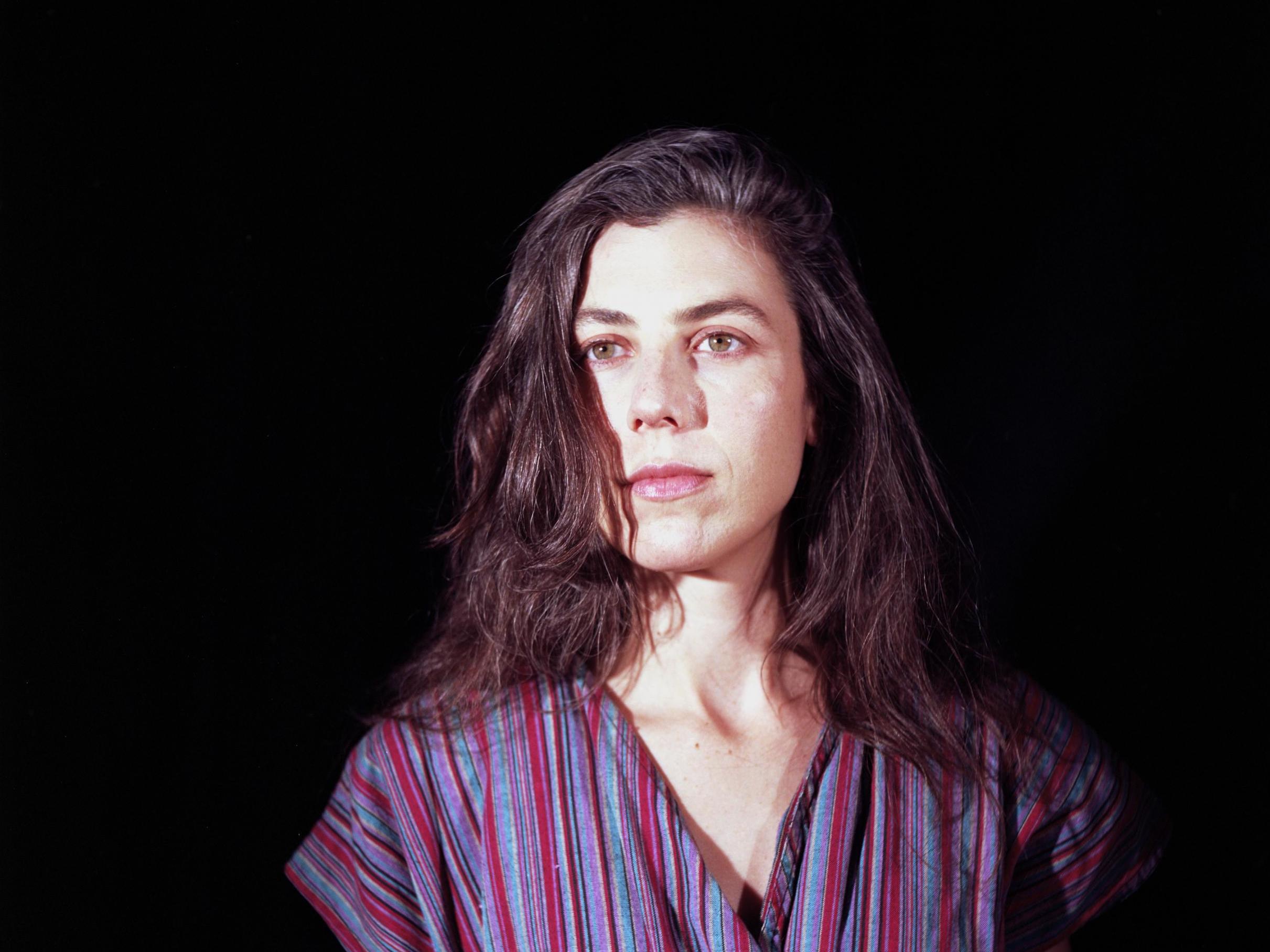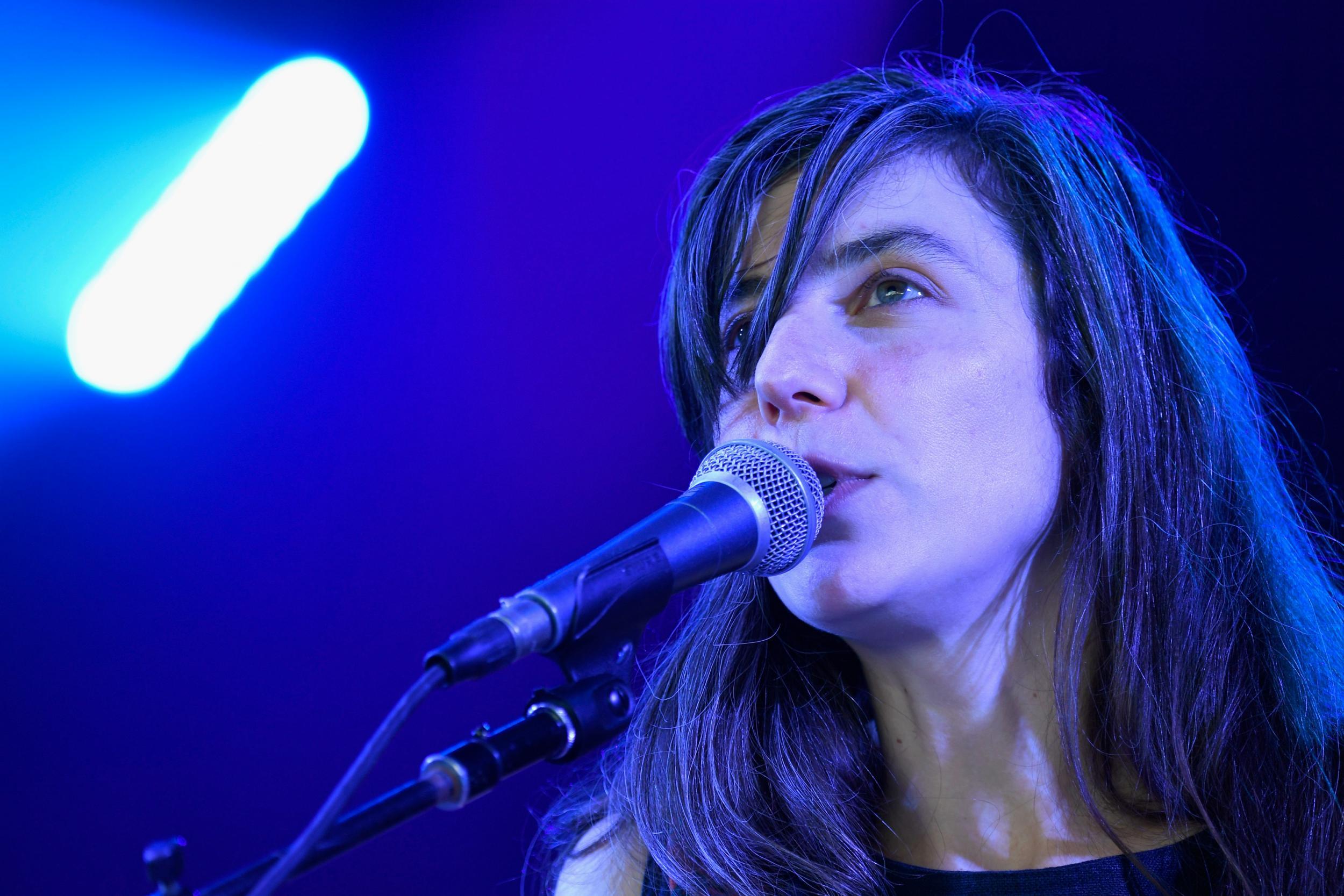Julia Holter interview: ‘I have total imposter syndrome’
The cerebral Californian's new album proves there's a growing market for challenging music. She tells Helen Brown about medieval hocketing, bagpipes, and why she's still 'terrified' in rehearsals


Your support helps us to tell the story
From reproductive rights to climate change to Big Tech, The Independent is on the ground when the story is developing. Whether it's investigating the financials of Elon Musk's pro-Trump PAC or producing our latest documentary, 'The A Word', which shines a light on the American women fighting for reproductive rights, we know how important it is to parse out the facts from the messaging.
At such a critical moment in US history, we need reporters on the ground. Your donation allows us to keep sending journalists to speak to both sides of the story.
The Independent is trusted by Americans across the entire political spectrum. And unlike many other quality news outlets, we choose not to lock Americans out of our reporting and analysis with paywalls. We believe quality journalism should be available to everyone, paid for by those who can afford it.
Your support makes all the difference.
“Heeeeyyy… cooool…. awwwwwesome.” When Julia Holter speaks, she sounds more like a stoned-out valley girl than a cerebral, experimental musician who sings about ancient Greek verses, modernist poetry and medieval monks. I have to close my eyes to properly drift into the abstract sonic universes she creates, so it feels weird to be meeting her in the resolutely no frills lobby of a North London hotel.
But the 34-year-old Californian’s mind appears enviably untethered to the cheap, faux-leather seating and the dull fug of instant coffee. Or, indeed, to my questions. She was performing late at the Hackney Arts Centre last night, and still feels “fuzzy”. I imagine her skull is still vibrating with feedback after performing songs from her fifth album, Aviary (2018), reviewed as a “good kind of apocalypse” by Rolling Stone and “an ordeal” by The Observer.
Written in response to “all the internal and external babble we experience daily”, the album, says Holter, is an attempt to reflect “that feeling of cacophony and how one responds to it as a person – how one behaves, how one looks for love, for solace. Maybe it’s a matter of listening to and gathering the seeming madness, of forming something out of it and envisioning a future”.
“I wonder if my heart tells me everything I need to know…” Holter queries, on new single “Les Jeux to You”. The song begins prettily, before exploding into a wild rumpus of thumped piano chords, pounded drums, synth squawks and layered vocal dissonance. “I see, I no,” yelps Holter, gleefully chopping language into syllable splinters that fly free of significance. “I si, I though, I sex, I jeu, I nice, I hey, I aye, I show, I fun, I tall, I man, I knew…”
In the dystopian video, directed by synth pop’s Geneva Jacuzzi, the singer is wrapped up like a mummy, loaded onto a cart with a gramophone and seen casually munching on a rose — Gertrude Stein gag, geddit? Next, her unflinching flesh is daubed with letters in homage to Alejandro Jodorowsky’s 1968 surrealist film Fando Y Lis.
You can see why some critics would like to see Holter, a graduate of California Institute of the Arts, confined to Pseud’s Corner. One of her earliest recordings was a sonic interpretation of a 1920s cookbook — “All marshmallow, invert wishes in hot lady oven…”
But meeting Holter is a reminder that she’s playing, not being pretentious. The shy daughter of two historians grew up finding the music in long words she didn’t understand, and doesn’t expect her audience to decrypt her every reference to Sappho or Frank O’Hara. She doesn’t pretend to be an expert on either subject herself — they’re just people who have caught her attention, stuck into her music like images on a sonic Pinterest account, then swept up into gorgeous arcs of melody – like those on new songs “Words I Heard” and “I Shall Love 2”.
At energetic shows, she introduces songs with lines like, “This one is about how a statue might feel if the statue knew it could be human,” or “just imagine that a bunch of brass instruments are chasing after you”. This one was packed. There’s a growing market for more challenging music. Dr Peter Elsdon, a musicologist at the University of Hull, has said that millennials are increasingly open to new, sonic adventures. Last year, Spotify, Amazon and Deezer all reported startling increases in the numbers of people under thirty listening to jazz.

As we talk, Holter’s boyfriend and collaborator Tashi Wada (musician, experimental composer and son of Fluxus member Yoshi) is sleepily hauling their gear into a van outside. Resting an affectionate arm on the pile of battered black boxes, Holter tells me, “It’s sooooo great to tour with bagpipes. And flugelhorn and trumpet… Sarah [Belle Reid, who plays on both the album and on stage] also makes her own built electronics. Crazy stuff.”
Enjoy unlimited access to 100 million ad-free songs and podcasts with Amazon Music
Sign up now for a 4 month free trial (3 months for non-Prime members)
Enjoy unlimited access to 100 million ad-free songs and podcasts with Amazon Music
Sign up now for a 4 month free trial (3 months for non-Prime members)
The instruments she lists with such warmth can sound scary on the record. My small children covered their ears against the escalating drone and dissonance of the first track, “Turn the Light On”, though they loved the quirky melodies of her more accessible 2015 album, Have You In My Wilderness.
“Ohhhhh, yeah!” she laughs. “I know what you mean. “Turn The Light On” started out as something really calm. That thing of me wanting so swim in a sea of synthesisers to find some kind of catharsis. I was creating an ecstatic expression of the A-flat major scale. Going up and down… Here, hang on, I have a demo…” She pops her phone onto the table and a heavenly, harp-ish glissando floats out across the lobby, to the pleasant surprise of some Eastern Europeans checking out.
“All I told the strings was to do ascending tremolos, holding down the bass A flat. I mean, not super strict, but…” She shakes her hands like a medium hamming a trance. “And then I told everybody else to go crazy in that key. It’s a blast of sound. It was supposed to be a love song, but when the band came in, it got tense and chaotic. But a good friend says it’s her favourite thing on the record.”
Despite four years studying music at the University of Michigan before moving onto CalArts, Holter still needs this kind of approval. And she still feels “terrified” at the thought of asking other musicians to play her stuff. “I hate rehearsals. I have total imposter syndrome. My band are such amazing musicians in their own right, though. So there’s quite a bit of improvisation.”
That improv often takes the form of medieval hocketing, sharing melodies between voices and/or instruments. In her accent, it’s “hawk-eting”. Which makes it sound, rather accurately, like semi-tamed notes are sent flying from her gloves, to circle and shriek before returning with bloody claws. She laughs, equal parts pleased and embarrassed, grey-green eyes crinkling. “Awesome! I mean, we have that all through nature — call and response, birds, frog sounds. We all love to hocket.”
Holter’s long obsession with all things medieval — “You HAVE to sign up to Medieval Twitter!” — also surfaces on a song called “Chiachise” which has its roots in “one of those misogynistic troubadour poems about loving a woman but also hating her as a cruel mistress. Being so disappointed by her failure to return his love”. As the original was in “the beautiful, dying language of Occitan”, Holter enjoyed inventing her own original words to bring it into the 21st century, including the glorious “alove”. “It’s alive and alone all at once isn’t it?”
She plays me more demos on her phone, sips tea and chats in looping, loping sentences about her parents’ dissertations and diatonic scales. And then Tashi is tapping on her shoulder — they need to get into the van and drive to Brighton where she will be playing as part of his band. She extracts a hand from a baggy, grey jumper sleeve and shakes a loose farewell, vaguely apologising if she hasn’t been at her most articulate.
But I don’t think Holter really wants to explain herself. She would rather be, as she sings, on “Voce Simul”, “a hundred minds… in a distant mirror… part of the dust”. She makes me smile. Aren’t we all?
Join our commenting forum
Join thought-provoking conversations, follow other Independent readers and see their replies
Comments